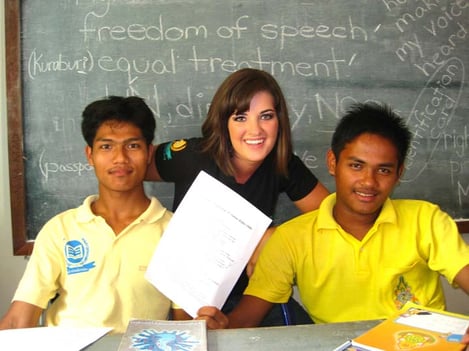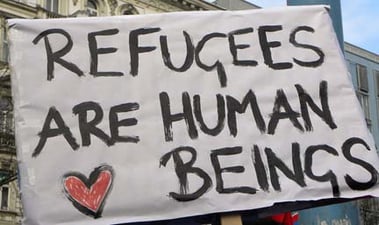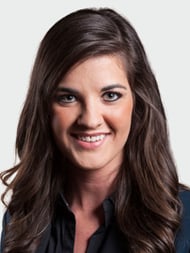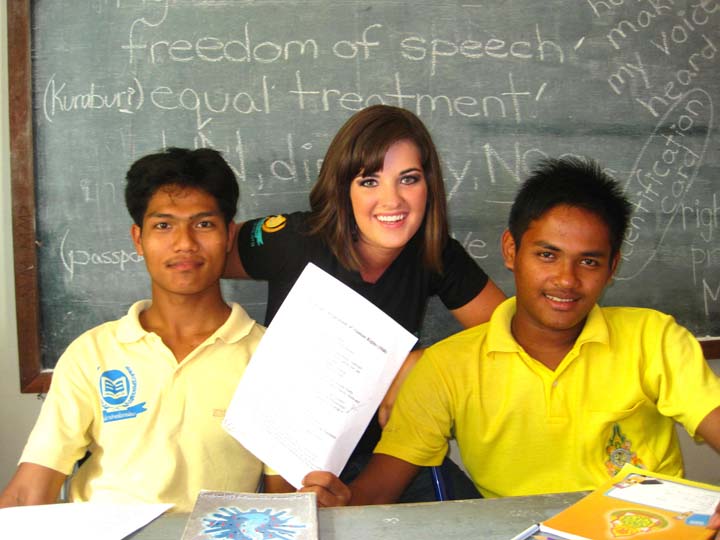One of my favorite afternoon activities is my weekly card game. I tend to lose, and I am pretty sure when I occasionally win it is because the dealer is being kind and lets me. What is even more embarrassing is that I am losing to someone who is about half my age. I am sitting in a detention center for unaccompanied immigrant children in Chicago, meeting with a young boy who is nearly 10,000 miles from home. He is one of just 30 million children worldwide forced to flee their homes seeking a safe place of refuge.
I am his guardian ad litem, his Child Advocate appointed by the U.S. government’s Office of Refugee Resettlement. My responsibilities include listening to his story, and determining what is in the best interest in regards to his placement in long-term foster care, the case to determine his legal status, and his general well-being at the detention facility. As a clinic student at the Young Center for Immigrant Children’s Rights at the University of Chicago Law School, I serve as a Child Advocate for numerous immigrant children seeking asylum in the United States. Their stories of resilience and courage are truly inspiring.
For too many of these children, they are forced to flee their homes, their communities, and their countries merely because they identify as gay. In approximately 75 countries around the world, homosexuality is considered illegal. In 10 of those countries the government or certain regions of the country enforce the death penalty as punishment for homosexuality.
 Brittany with Burmese migrant youth in Thailand.
Brittany with Burmese migrant youth in Thailand.
My interest in refugee issues was ignited during my junior year of college when I spent two months in southern Thailand advocating to bring an end to labor rights violations and human trafficking faced by Burmese refugees and migrants. At the same time, I was a Youth Outreach teacher for the Foundation for Education and Development, an international nonprofit organization, where I taught Burmese migrant youth a human rights curriculum. After returning to the United States, I continued to volunteer with the refugee community in Texas through the International Rescue Committee and Amaanah Refugee Services.
The next year I received an institutional perspective on immigration as an Archer Fellow at the U.S. Department of State, as well as serving on the LGBT Taskforce where I gained a deeper knowledge of the criminalization of homosexual conduct in the Middle East and North Africa.
Through the University of Chicago Law School’s International Refugee Assistance Project, I work with a team of students to help LGBT refugees in the Middle East seek refugee status and resettlement through the United Nations High Commissioner for Refugees. My school’s International Human Rights Clinic made it possible for me to travel to Morocco and analyze women’s rights in the constitutional reform process for UN Women. The International Human Rights Summer Fellowship enabled me to join the legal team at Minority Rights Group International in London, where I worked on strategic impact litigation to help indigenous and minority ethnic groups in Sub-Saharan Africa protect their ancestral land among other human rights.
 For my Community Service Project as a Point Scholar, this month I am hosting a panel discussion with stakeholders providing assistance to the LGBTQ immigrant community, including attorneys, nonprofit organizations, advocacy groups and even a few courageous LGBTQ refugees. This group will come together to share ideas and address graduate students from various disciplines at the University of Chicago who have an interest in bringing relief to the LGBTQ immigrant community through social services, legal aid, and policy efforts.
For my Community Service Project as a Point Scholar, this month I am hosting a panel discussion with stakeholders providing assistance to the LGBTQ immigrant community, including attorneys, nonprofit organizations, advocacy groups and even a few courageous LGBTQ refugees. This group will come together to share ideas and address graduate students from various disciplines at the University of Chicago who have an interest in bringing relief to the LGBTQ immigrant community through social services, legal aid, and policy efforts.
I have seen the scars and wounds inflicted upon these young LGBTQ asylum seekers by the very community that raised them, but I have also seen their astonishing ability to forgive their aggressors and embrace their circumstances with hope for the future. Law school has exposed me to the realization that law and policy can be a powerful tool to empower marginalized populations and advocate for change on their behalf.
This post was written by Toyota Financial Services Point Scholar Brittany Ellenberg

Brittany Ellenberg grew up in La Porte, Texas, where she graduated valedictorian. After coming out and grappling with prejudice that threatened to overshadow her achievements, Brittany transformed her experience with the intolerance of a few into a passion for social equality for the LGBTQ community. Read more about Brittany.

